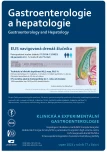Why should we and should we not use ChatGPT in gastroenterology?
Authors:
Jan Král 1,2
; K. Waloszková 1; J. Selucká 1; E. Machytka 1
; Julius Špičák 1
; M. Bužga 3
Authors‘ workplace:
Oddělení pro metabolickou endoskopii, IKEM, Praha
1; II. interní klinika 2. LF UK a FN v Motole, Praha
2; Ústavy fyziologie a patofyziologie, LF OU, Ostrava
3
Published in:
Gastroent Hepatol 2023; 77(4): 322-325
Category:
Clinical and Experimental Gastroenterology: Review Article
doi:
https://doi.org/10.48095/2023322
Overview
Artificial intelligence (AI) is increasingly being incorporated into medicine, including gastroenterology, opening new possibilities for the diagnosis and treatment of digestive tract diseases. ChatGPT, an AI model based on the GPT-4 architecture, has the potential to accelerate diagnosis and treatment, personalize care, educate, and train healthcare professionals, support decision-making, and improve communication with patients. However, with the use of AI come challenges such as the limited ability of AI to replace human judgment, data errors, issues related to security and personal data protection, and implementation costs. The future of ChatGPT in gastroenterology depends on its ability to process and analyze large amounts of data to identify patterns and create individual treatment plans. Thanks to advancements in AI and machine learning, ChatGPT is becoming more accurate and efficient, enabling faster diagnosis and treatment of gastroenterological diseases. In the field of education, ChatGPT will serve as an invaluable source of information on the latest research articles and procedures. Despite the benefits of AI in gastroenterology, it is essential to address issues of ethics, data protection, and collaboration between AI and healthcare professionals. Ensuring proper protocols and procedures will enable the safe and ethical use of AI in medicine. Although AI offers significant potential for improving the quality of care, it is necessary to address challenges associated with data protection, security, and ethics.
Keywords:
artificial intelligence – gastroenterology – AI – ChatGPT
Sources
1. Egger J, Gsaxner C, Pepe A et al. Medical deep learning-A systematic meta-review. Comput Methods Programs Biomed 2022; 221 : 106874. doi: 10.1016/j.cmpb.2022.106874.
2. Lahat A, Shachar E, Avidan B et al. Evaluating the use of large language model in identifying top research questions in gastroenterology. Scientific reports 2023; 13 (1): 4164. doi: 10.1038/s41598-023-31412-2.
3. Chuah KH, Chan WK. Non-invasive biomarkers for liver inflammation in non-alcoholic fatty liver disease: present and future. Clin Mol Hepatol 2023; 29 (2): 401–403. doi: 10.3350/cmh. 2023.0062.
4. Ashton JJ, Brooks-Warburton J, Allen PB et al. The importance of high-quality ‚big data‘ in the application of artificial intelligence in inflammatory bowel disease. Frontline Gastroenterol 2023; 14 (3): 258–262. doi: 10.1136/flgastro - 2022-102342.
5. Le Berre C, Sandborn WJ, Aridhi S et al. Application of Artificial Intelligence to Gastroenterology and Hepatology. Gastroenterology 2020; 158 (1): 76–94 e2. doi: 10.1053/j.gastro.2019.08.058.
6. Wang F, Preininger A. AI in Health: State of the Art, Challenges, and Future Directions. Yearb Med Inform 2019; 28 (1): 16–26. doi: 10.1055/s-0039-1677908.
7. Zhuang H, Zhang J, Liao F. A systematic review on application of deep learning in digestive system image processing. Vis Comput 2021 : 1–16. doi: 10.1007/s00371-021-02322-z.
8. Seong D, Choi YH, Shin SY et al. Deep learning approach to detection of colonoscopic information from unstructured reports. BMC Med Inform Decis Mak 2023; 23 (1): 28. doi: 10.1186/s12911-023-02121-7.
9. Barrett JS, Oskoui SE, Russell S et al. Digital Research Environment (DRE) -enabled Artificial Intelligence (AI) to facilitate early stage drug development. Front Pharmacol 2023; 14 : 1115356. doi: 10.3389/fphar.2023.1115356.
10. Palmer A, Schwan D. More Process, Less Principles: The Ethics of Deploying AI and Robotics in Medicine. Camb Q Healthc Ethics 2023 : 1–14. doi: 10.1017/S0963180123000087.
Labels
Paediatric gastroenterology Gastroenterology and hepatology SurgeryArticle was published in
Gastroenterology and Hepatology

2023 Issue 4
- Possibilities of Using Metamizole in the Treatment of Acute Primary Headaches
- Metamizole at a Glance and in Practice – Effective Non-Opioid Analgesic for All Ages
- Metamizole vs. Tramadol in Postoperative Analgesia
- Spasmolytic Effect of Metamizole
- The Importance of Limosilactobacillus reuteri in Administration to Diabetics with Gingivitis
-
All articles in this issue
- Clinical and experimental gastroenterology
- Hepatogenous diabetes in liver transplant candidates: prevalence, risk factors and posttransplant outcome – prospective study
- Robotic pancreatic surgery in a high-volume pancreatic cancer surgery center – first experience
- Chest pain as an atypical symptom of acute cholecystitis
- Impact of the COVID-19 pandemic on acute pancreatitis in the Czech Republic – pilot data PANACOTA study (PANcreatitis Acuta in COVid Time Analysis)
- Changing epidemiology of Clostridioides difficile infection – increasing number of community-acquired forms and infections in children
- Why should we and should we not use ChatGPT in gastroenterology?
- EUS guided drainage of gallbladder: own cohort of 66 patients for the period 2016–2022 from the Hospital Jablonec nad Nisou
- Switch from biosimilar infliximab CT-P13 to biosimilar infliximab SB-2 in the long-term maintenance therapy in IBD patients – prospective observational study
- Dosage forms of oral mesalazine and their clinical use
- Subkutánní infliximab – poznatky z praxe a další možnosti využití u pacientů s IBD
- The selection from international journals
- Správná odpověď na předchozí kvíz
- 44. české a slovenské endoskopické dny a Olomouc Live Endoscopy 2023
- Kreditovaný autodidaktický test: Klinická a experimentální gastroenterologie
- Biofeedback assisted deep breathing training in refractory disorders of gut-brain interaction – our first experience, impressions and suggestions for further clinical practice
- 12th Club Symposium on Portal Hypertension April, 14th–15th 2023, Banská Štiavnica
- Gastroenterology and Hepatology
- Journal archive
- Current issue
- About the journal
Most read in this issue
- Changing epidemiology of Clostridioides difficile infection – increasing number of community-acquired forms and infections in children
- Robotic pancreatic surgery in a high-volume pancreatic cancer surgery center – first experience
- EUS guided drainage of gallbladder: own cohort of 66 patients for the period 2016–2022 from the Hospital Jablonec nad Nisou
- Dosage forms of oral mesalazine and their clinical use
